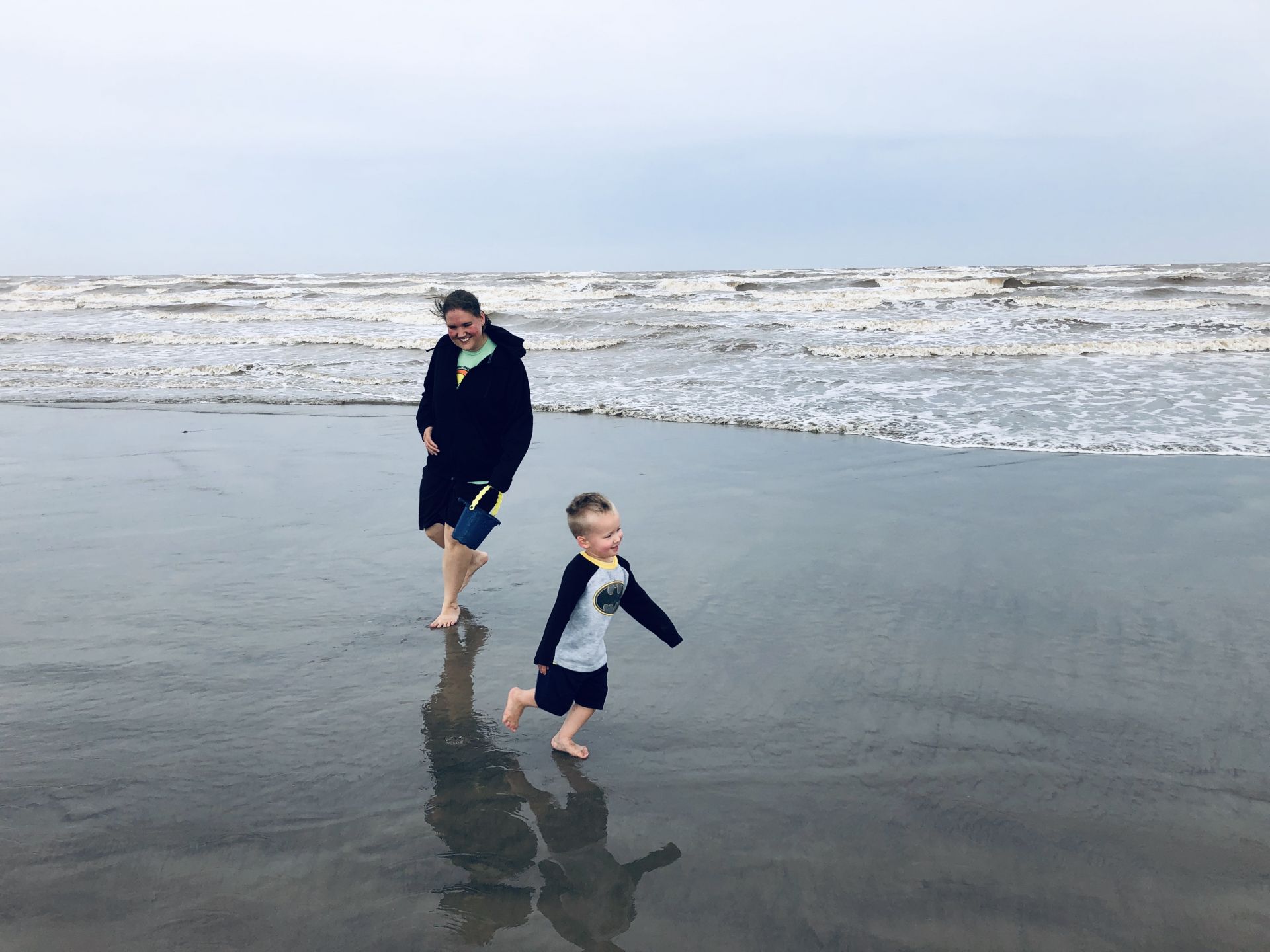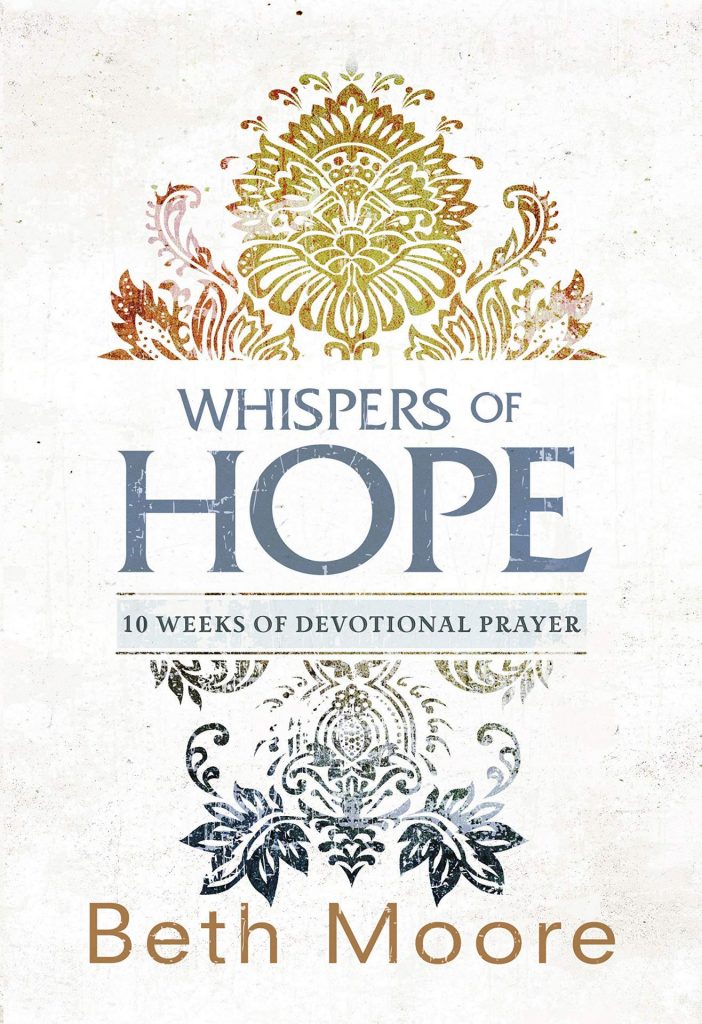
by Hannah Hanzel | Nov 4, 2019
Thanksgiving is upon us! For most young adults looking
toward the holiday, we all know what is coming—the dreaded kids’ table at
grandma’s house. If I lean way back from the knee-high kids’ table, squint my
eyes and tilt my head, I can sometimes catch a glimpse of the illustrious adult
table.
Ah, yes, the adult table. With its fine linen table cloth
cascading down the edges of the waist high, hardwood table. The food is out
family-style, sans fear of grubby little hands grasping at the delicacies. As I
rest my chin on my tucked-in knees, I can just imagine all the leg room and
elbow space permitted at the extravagant adult table.
The food is the same and absolutely delicious, though it
seems to taste different on my little, palm-size plastic plate. It’s no heavy-duty,
10”, Chinet platter plate—like the ones the adults have.
If I carefully tune out my little cousins’ bickering on the
topic of Disney’s Frozen characters,
I can barely hear the deep conversations and adult-appropriate banter at the
grown-ups’ table. I’m reminded I am only a spectator of their conversation when
one of my little cousins pulls me from my trance by accidently spilling her milk
on me. Good thing it was a sippy cup spill and not a grown-up cup spill—I may be
exaggerating a hair.
I really don’t mind the kids’ table at Thanksgiving. It used
to have its charm and glory. After all, long ago I was stuck in a high chair
but grew and found myself at the kids’ table. My knees didn’t always jam into
the side of the plastic table, and my comrades around me weren’t always two
feet shorter than me.
There was a time when it was right for me to be there at the
kids’ table. But there was also a time long past that I should have been too
old for it. I’m finding that my walk with the Lord is not unlike this very
scenario.
Hebrews 5 finds its author rebuking some longtime Christian
adults tucking their knees to fit at the baby Christians’ table. In verses 11-12,
the writer tells them, “You have become
too lazy to understand. Although by this time you ought to be teachers, you
need someone to teach you the basic principles of God’s revelation again. You
need milk, not solid food.”
The author is not wagging his finger at a bunch of baby
believers that must work harder or become something for which they are not yet
ready. Rather, he is chastising a group of believers who, by now, should be
much further in their walk with the Lord than they are currently. The writer
continues on in verses 13-14, “Now
everyone who lives on milk is inexperienced with the message about
righteousness, because he is an infant. But solid food is for the mature—for
those whose senses have been trained to distinguish between good and evil.”
Essentially, he is telling the Hebrew believers, “It’s time
to grow up.” He all but drug them from the kiddie table, to plop them down at
the adult table.
Why did the author feel that it was necessary to do so?
After all, wouldn’t the immature prefer to be striving toward maturity? What is
it that keeps the spiritually young from growing? Why would “baby believers”
choose the milk of their new belief over the meat of a mature faith?
For the Christians in the text, and many professing
believers in the world today, the author spells out the reason. He tells them,
“You have become too lazy to understand.”
Laziness. Scripture tells us many things about laziness and its destructive
effects on our spiritual walks (Prov.10:4-5, Prov. 12:24, Prov. 13:4, Prov.
14:23, Eph. 5:15-17, 2 Thess. 3:6-10).
Laziness is perhaps one of the saddest avenues on which I
could miss out on the work of the Lord. It’s sad, simply because it wasn’t that
I wasn’t working hard enough or was too busy. I missed out on working alongside
the Lord only because I was too lazy.
Spiritual laziness looks different for everyone, but
consider these statements:
- I was too lazy to pull Scripture apart for
myself, so I just grabbed the same old devotional off the shelf.
- I was too lazy to glean something from the
sermon last Sunday, so I scrolled through Instagram during service.
- I was too lazy to engage in deep conversation,
so I left the theological discussions to others.
- I was too lazy to find a mature mentor or
advisor, so I just leaned on my own understanding.
How miserable to stand before the throne of God with nothing
but a sippy cup of spiritual milk and a handful of self-righteousness, both
spoiled from an inappropriate amount of time wasted.
At Thanksgiving, I guarantee if I were willing to muster up
the confidence, I could grab that heavy-duty, 10”, Chinet platter plate and
take a seat at the adult table. Likewise, I mustn’t let a simple step in
obedience, in initiative, to keep me from a deeper walk with the Lord. I don’t
want to live off of spiritual milk forever. I want a big, juicy slice of God’s
Word to sink my teeth into and offer me fuel for further growth.
Later in Hebrews, the author continues to address his dearly
loved brothers and sisters. He voices his longing for them as he writes, “Now we desire each of you to demonstrate the
same diligence for the full assurance of your hope until the end, so that you
won’t become lazy but will be imitators of those who inherit the promises
through faith and perseverance” (Heb. 6:11-12).
Diligence. Faith. Perseverance.
What powerful tools against the Enemy’s scheme to keep us
lazy and useless before the spiritual harvest of plenty. Get up from that kids’
table, my brothers and sisters! Strive for wisdom (Psalm 51:6). Increase in
maturity (2 Pet. 1:5-8). Grow in knowledge (2 Pet. 3:18). Be diligent (Gal. 6:9).
Have faith (Luke 17:5). Press on in perseverance (Col. 1:11-12).

by Hannah Hanzel | Oct 17, 2019
What can you do with a general,
When he stops being a general?
Oh, what can you do with a general who retires?
Nobody thinks of assigning him
When they stop wining and dining him…
Irving Berlin’s song What
Can You Do with a General, When They Stop Being a General was made famous
in the movie White Christmas. The
main characters of the film were representative of a nation trying to find
their new normal in a post-World War II era.
Soldiers came home and had to adjust back to their everyday
routine, mentally needing to switch from soldier to citizen. The women, having
to become, in essence, single mothers and breadwinners, had to adjust back to
the homemaker life.
Everyone made their way back to the normal they had before
the war, only to find the world vastly different post-war.
For men and women of authority in the armed forces during
that time, the transition from military honor, power and respect would have
been a shocking reality check as they faded into a sea of mediocrity and the
ordinary. Their hearts were weighted with unseen medals and hard-earned
victories. But their chests were bare. These medals don’t match a regular starched
button up.
What can you do
with a general, when they stop being a general?
This song always rings true in my ear, for I have seen a
similar transition for soldiers of sorts who must return to their old normal,
having found it, too, has changed.
From Moon to Mueller, from Livingstone to Elliott,
missionaries have long been praised for their willing hearts and lives of
sacrifice. Much like World War II soldiers, when they buy their ticket and
board, everyone’s there to cheer them on and wave goodbye. When they are in the
field, everyone’s writing letters and sending love and prayers.
When they come back on furlough, everyone’s bringing them
meals and treating them to fine experiences. When they head back to their
mission field after furlough, everyone’s there to cheer them on and wave
goodbye again.
But what happens when that missionary is called back to the
U.S.A.? What can you do with a missionary, when they stop being a missionary?
They fill his chest
with medals while he’s across the foam,
And they spread the
crimson carpet when he comes marching home,
The next day someone
hollers when he comes into view,
“Here comes the
(missionary)” and they all say “(Missionary) who?”
They’re delighted that
he came,
But they can’t recall
his name
The transition is hard. There’s so much change.
As a missionary kid, I saw this change affect my family as
we moved back to the States after serving in Central Asia for five and a half
years. My parents, though struggling themselves, managed to help us five kids
adjust. All seven of us could tell you a different story of how hard the move
was.
Everyone would hug our necks and say, “Welcome home!” This
always confused me. Having spent the majority of my life in Asia, that had
become my home. This country of my birth was not my home, and held much culture
shock for me. Thousands of “Why” questions danced and drudged in my 10-year-old
mind.
Why are there electric hand dryers in the bathrooms here?
Why does everyone have a cell phone? Should I have one?
Why do the girls dress and talk so different from me? How
can I silence their stares?
Why don’t we take our shoes off at the church doorway
anymore?
Why is everyone in such a hurry?
I’ve found that we were blessed to be a part of a church
that loved us and provided for us fully during our move from Asia to McAlester,
Oklahoma. Though I had many questions, they were often allowed to be asked and
were answered gracefully. Though I had some fear, my church and home were safe
places to be.
Not all churches know what to do with missionaries when they
come “home” for good. I would like to offer two things congregations should not
do and two things congregations can do when attempting to care for the
missionaries who have been called back to the States.
Congregations should not…
…pretend things are
“back to normal.” It would have been inappropriate to expect a World War II
soldier to return from battle and act like they weren’t changed, or that they could
simply “return to normal.”
The same is true for a missionary. Most missionaries have
experienced great loss, vast change and life-altering perspective shifts. Don’t
expect them to return to the States the same person as when they left.
…be disappointed in
them. They may not have stayed as long overseas as they had hoped. They may
have been offered an early retirement. They may have had a sick family member
for whom they had to return. Don’t be disappointed in them or feel they have
disobeyed God by coming back from the mission field.
Congregations can…
…provide for their
physical needs… and wants. From housing to employment, from food to a (more
than likely needed) vacation. Don’t wait for them to ask for help. Simply ask
yourself, “What would I want or need if I were in their shoes?”
…introduce. Help
them get introduced to their new home! Take them to see the sights, try the
tastiest restaurants and visit the popular hang-outs. Help them fall in love
with where God has placed them. If they lived in your city before moving
overseas initially, then re-introduce them to the old places and introduce the
new places.
Above all, love them fiercely, utilize them in your church
and empower them to press on. Missionaries who have returned to the States
long-term are assets to the American church. What can you do with a missionary
when they stop being a missionary? The ends of the earth are the limit.

by Hannah Hanzel | Aug 28, 2019
My dad has played a significant role in my life. From
teaching me to pray as a child to exposing me to deep, sound theology in
college, my dad has challenged me and invested in me. One thing he and I have
been doing periodically is sharing the various books we are reading. This
simple exchange of words in conversation or text messages containing an author
and book title has subtly been a continuing factor of my dad’s influence in my
life.
In this recent practice, I have begun to realize the power
of men’s influence in women’s lives. Whether it’s a pastor to a female church
member, a father to his daughter, a male friend to his female friend, a brother
to his sister, there is a degree of authority and influence. In light of this,
I have also begun to realize how men are wielding this power.
There are the good men, like my dad and brothers, and many
others, who bear this influence with weighted intentionality and with humility.
There are lazy men who fail to realize this influence at all. There are abusive
men who are aware of this influence and use it for their own gain. But it is
for the aforementioned good men that I write this blog.
There are 10 books that these good men might be wise in
sharing with the women in their lives and might reap knowledge from for
themselves. These are 10 books I hope to offer to the good men of the church
who are looking to learn from, as well as protect, women’s tender hearts and brilliant
minds. I have included a brief description with each, as well as highlighted a
valuable insight these good men might receive about or from women in these
female authored books.
1. A Chance to Die | by Elisabeth Elliot
This book is one amazing missionary writing about another amazing missionary. Elisabeth Elliot was a prolific writer that, not unlike myself, was astonished by the life of Amy Carmichael. Elliot wrote about Carmichael in a powerful and moving way, telling the story of her life.
Return: An honest perspective on a single woman’s commitment to ministry
2. Each New Day | by Corrie Ten Boom
Having survived World War II and the Nazi’s worst female concentration camp, Corrie Ten Boom has an astounding appreciation for the everyday faith. Ten Boom offers simple, understandable daily devotionals in her book and offers hope to the broken.
Return: A realization of the resilience and tenderness of a godly woman
3. In His Image | by Jen Wilkin
In this book, Jen Wilkin, highlights 10 qualities of God that Christian men and women are called to reflect. Don’t be deceived by the flowery, feminine cover, Wilkin drops some serious, Grudem-style theology.
Return: A deeper understanding of God’s calling for the Church
4. The God Who Cares and Knows You: John | by Kay Arthur
After getting a taste of her writing, you might want to make some room in your library for Kay Arthur’s Bible commentary series. Arthur is known for her deep knowledge of God’s Word, and for making it understandable to all ages. Her gracious voice in writing all but conceals her vast understanding of theology.
Return: A dependable, female voice for sermon and teaching prep
5. Gladys Aylward | by Janet and Geoff Benge
This husband and wife duo paint a beautiful picture of the young missionary to China, Gladys Aylward. Amidst civil unrest and personal loss, Aylward serves courageously. The Benges have written an entire library of narrative biographies on the heroes of the faith worthy of reading.
Return: A realization of what women endure on the mission field
6. Whispers of Hope | by Beth Moore
In this simple devotional, Beth Moore walks you through a life-changing approach to prayer. Look beyond the female-targeted design, and reap the benefits of an increased appreciation for prayer.
Return: A more intimate, tender view of the Lord
7. On Reading Well | by Karen Swallow Prior
I am currently reading this book because of my dad. He is in the middle of reading it for the second time. He raves of its theological richness and of Prior’s ability to communicate doctrine in its relation to reading.
Return: A creative view on theological topics
8. The Triumph of John and Betty Stam | by Dr. and Mrs. Howard Taylor
Another missionary book by another dynamic, authoring duo! Read the heart-wrenching tale of two martyrs and their love story.
Return: A desire for God’s Kingdom through the faithfulness of men and women
9. The Gospel Comes with a Housekey | by Rosaria Butterfield
In this book, Rosaria Butterfield opens the door to a whole new concept of hospitality. Read about her life story, and the power of showing kindness in a radical way.
Return: A resolve for encouraging women in ministry to use their gifts
10. Gay Girl, Good God | by Jackie Hill Perry
Jackie Hill Perry goes through the story of her early years as a homosexual and of God’s redeeming hand that resurrected her to new life and out of the former lifestyle.
Return: An awareness of the brokenness and needs of women
My prayer, for the good men of the Church, is for them to continue to realize the influence they have in women’s lives around them. What these good men read, what they watch, what they listen to… many women are hearing and seeing, and learning. May these men continue to empower women in their pursuit of knowledge and protect the women’s hearts around them.

by Hannah Hanzel | Aug 21, 2019
“Someday,” said the
little girl to her aunt, “My Prince Charming is going to come bounding up on
his white horse. He’s going to pick me up, and we’ll ride off together… and
live happily ever after.” Gazing off into the imaginary distance of her bright,
romantic future, the little girl’s eyes fell then to her aunts “ringless” left
hand. “Um,” she said to her young, single aunt, “Where’s your Prince Charming?”
“Well, sweetie,” the
aunt said, “My Prince Charming’s out there, but he’s mounted a turtle instead
of a steed, and he’s more than likely taken a wrong turn… and he’s probably too
stubborn to ask for directions.”
I heard this silly, short story a long time ago and related to the aunt on many levels. I’m still young and hopeful of marriage, but it seems that every year I get further from 18, still single, I feel less hopeful for that dream. Don’t get me wrong, I’m grateful. There’s so much to be grateful for as a single adult—like unhindered family time, commitment to my job, freedom to minister with everything I have, fewer travel constraints and so much more.
Singleness is awesome. Except when it’s not.
Singleness, much like married life, is a balance of scales.
On one end of the scale, there is the Hannah that desires more than anything to
be married. She dreams of having a home and children to tend to and raise up.
She knows, deep down, that she craves marriage and a family, knowing they are
gifts from the Lord.
On the other end of the scale is the Hannah that desires
autonomy and exploration. She can’t be bothered with anything that might nail
her down. She believes God is truly all that she needs. She’s courageous and
bold, fast-paced and effective.
Both sides of the scale are acceptable versions of myself
when in balance with each other.
When one weighs heavier than the other, there are unhealthy
obsessions or vast amounts of pride that can seep in. To keep this balance
maintained, there is only one solution that has worked for me: prayer.
Specifically, prayer for my future husband.
I don’t bank on the day that my tardy Prince Charming, atop
his noble tortoise, will arrive, but I do look forward to it. He won’t complete
me, but he will love me. Because of this, I can pray for him, whether he’s out
there or not. Here are three things I pray for my wandering groom…
1. Increase in wisdom. I pray the whole of Job, Proverbs and Ecclesiastes over my future beloved. I ask the Father to teach him wisdom, to give him discernment, and to impart holy knowledge to him. Education and wit are attractive in a man, but wisdom is far more handsome.
2. Decrease in pride. I pray that my man is humble, not self-depreciating, but humble. I pray that the Lord would bless him and grant him eyes to see the way that his Heavenly Father sees, producing in him a humility beyond his years and a hate for sin.
3. Fall in love. I pray that my future husband’s eyes are so lovingly glued on the Lord, that it takes the Father’s hands to usher me into his gaze. I pray that he is deeply driven by and devoted to God’s Kingdom, building it and increasing it. And I pray that, when I come along, he’ll offer me his hand in joining with him in his pursuit of the Father. My prayer is that he would fall in love with God long before he ever falls in love with me.
Balance is hard, and I’m not a graceful person. I trip a lot
and have stumbled more times than not.
But God is so faithful (Lam. 3:22-23). He’s more than enough
to sustain me (2 Cor. 12:9). He’s gracious and kind (Joel 2:13), and He tips
this single’s scales as He wills (Prov. 19:21).
If this man whom I pray for does not exist, I can pray
knowing that in it all, I am drawing near to the Lord regardless of what He has
planned for my marital status.
And if this turtle-mounted, map-deprived Prince Charming
whom I pray for does exist, then I can pray knowing the Lord is doing a work in
him that will increase the joy of our marriage and ministry.

by Hannah Hanzel | Jul 25, 2019
Several weeks ago, I was walking on a beach in Galveston,
Texas. With each shifting step, my family’s rented beach house got further and
further behind me. I had to get away from the house just for a bit and be
alone. After all, there were about 20 people in the house at the time. But it
wasn’t really for solitude that I went on this walk. It was for memories.
As the waves tumbled up to my feet and slumped back into its
watery home, I talked to my Lord. I spoke with Him about this family vacation.
I noted the hours of Mario Kart my siblings and I played on the Wii as the rain
interrupted our beach days.
I told Him about the laughter that bubbled out of my
three-year-old nephew as we played on my grandparents’ bed. I shared in detail
the hilarity of going crab hunting with all the menfolk after dark. I’m sure He
smiled as I recalled with Him the family worship service we had our first night
at the beach.
From swinging in hammocks with my sister, to shopping on The
Strand, to meeting up with old missionary friends, I had a lot to talk about
with my Creator. Gratitude swept over me, not unlike the foamy waves at my
feet.
My walk along the shore and along my memories was halted
when a single thought arose, “What if God takes it all?”
My home. My parents. My siblings and their spouses. My
precious nephew and soon-to-be-born niece. My amazing job. My freelance
company. My church. My dear, dear friends. Even my silly dog. What if God takes
it all?
Admittedly, even at the mere thought of it, I nearly doubled
over right there on the wet sand. My feet sunk, much like my heart, as the tide
and my thoughts came in. I pressed on in my walk, this time heavier and tearfully.
My thoughts raced, as my fists seemed to grip all those things I hold dear. I
turned around, concluding I had walked far enough. I felt as though the more I
considered losing it all, I just wanted to be near my family.
I started the walk back, and as I did, I saw something in
the distance walking toward me. As I squinted, I could eventually see my
sister-in-law and nephew searching for seashells on the beach just outside of
our beach house. I stood still, watching them interact and laugh, taking mental
picture after mental picture.
I felt my Lord speak to me, “Trust Me.”
Having been called to and making strides toward working as
an international missionary, I often feel the Father telling me this. In
pursuit of education, “Trust Me.” In pursuit of a career, “Trust Me.” In this
season of waiting, “Trust Me.”
But it was different this time on the beach. I realized
right there that, someday, when I enter the mission field alone, leaving my
family, friends, and even my little dog, I cannot function without trust in
Him.
Scripture is clear in communicating that trust in God leads
to a dependence on God (Prov.3:5) and that trust in God means an outpouring of
praise to Him (Psalm 28:7). Indeed, knowing God, truly knowing God, should lead
us to trust in Him (Psalm 9:10). What’s better, once I begin to know God, He
will not change on me (Heb.13:8). Unlike the shifting sand I stood on that day
on the beach, God will not change with time (James 1:17). He is worthy of my
trust (Psalm 18:30).
Because of these truths, I do not hoard my belongings or
loved ones, believing they’ll slip away at any moment. But, rather, I cherish
the blessing of them. I create memories and spaces in which to appreciate God
in a deeper way because of them.
What if God takes it all?
Then He is still good (Dan. 3:18). Trust Him.














